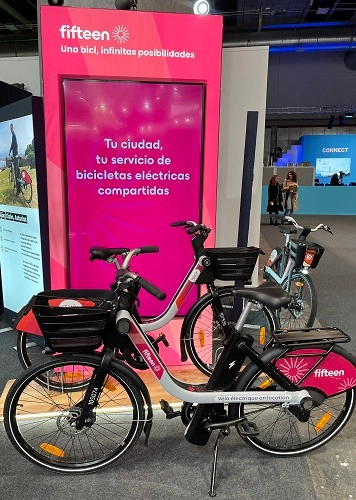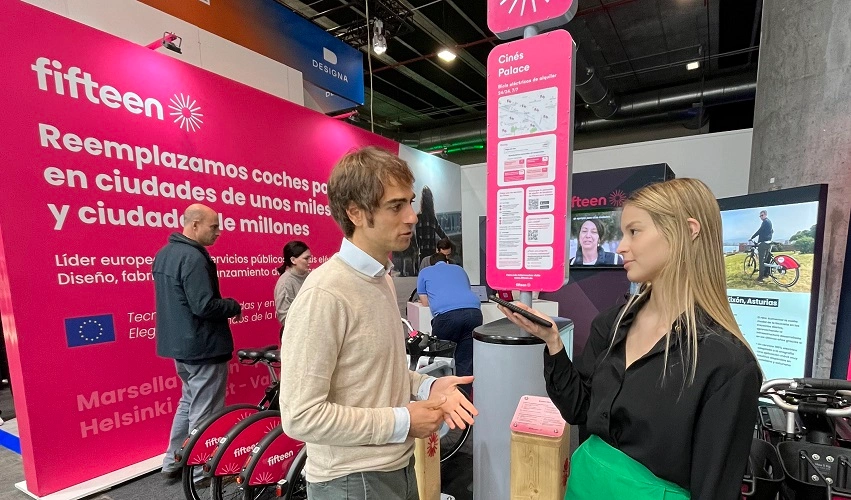According to a study conducted by Micro-Mobility for Europe (MmfE), in the past year, 28 million users in the European Union have utilized shared bicycle services.

In this context, Fifteen, a company that has been developing technology for public bicycle systems worldwide for the past 15 years, emerges.
“Among our achievements is the system in Paris, with over 24,000 bicycles,” states Artur Munne, Business Development Director of the company, in an interview with Mobility Portal Europe.
Moreover, they operate in over 20 countries, spanning across both Europe and America.
Some examples of these locations include Paris and Marbella in France, Gijón in Spain, Helsinki in Finland, and Lima in Peru, as well as Costa Rica.
However, their expansion doesn’t stop there, as they have plans to continue their growth.
For this reason, they are participating in the Global Mobility Call (GMC), the sustainable mobility congress that gathers various industries and stakeholders in Madrid.
“We are here to introduce ourselves to Spanish cities and maintain our focus on Spain, which is our second-priority market after France,” he explains.
In third place on their list is Germany, where they are currently working with a “much more specific focus.”
Fifteen’s goal is to assist cities in their transition towards a shift in transportation modes, promoting the reduction of car usage in urban areas.
And, consequently, encouraging the adoption of bicycles as the preferred mode of transportation for society.
Their offering encompasses short and long-term bicycle rentals, providing complete integration and customization with a straightforward implementation and operation process.
According to data published by the company, on average, every kilometer ridden on a shared bicycle contributes to a reduction of 66 grams of CO2.
With a fleet of 250 shared electric vehicles, the carbon dioxide emissions savings easily surpass 50 tons per year.
Therefore, even though they offer bicycles of all types, the company believes that electric ones have exceptional potential for meeting their goals.
Regarding the charging of the vehicles, Munne explains that they have designed an innovative station technology.
This solution is more compact and gives cities the opportunity to expand the system “with a significantly reduced investment,” allowing for broader and more efficient coverage.
All of this with the ultimate goal of serving a larger proportion of the population.
At the same time, “we try to implement smart charging to reduce the need for fleet rebalancing and system maintenance expenses,” he emphasizes.
How to promote the bicycle culture in the EU?
The reluctance of many citizens to opt for the use of this mode of transportation is partly attributed to the lack of infrastructure, which generates a feeling of insecurity.
On the other hand, the lack of bicycle availability also contributes to this issue.
These factors play a role in the fact that the cycling culture is not yet fully ingrained in certain European Union countries.
However, the promotion of conventional and electric bicycles is essential.
During the GMC, Fifteen has presented a study alongside Ipsos, which specifically focuses on Spain.
This report aims to identify areas of improvement and opportunities to maximize the potential of public bicycle services.
“According to the survey results, one of the main obstacles that the population mentions when considering the use of these systems is the concern about safety on public roads,” he asserts.
As a result, Munne states that many cities still have the challenge of establishing simple policies but must make progress in terms of bike-friendliness to fully utilize all these systems.
“I believe it’s important to encourage the adoption of a habit within the population. One that is efficient enough to replace the currently available alternatives,” he concludes.








